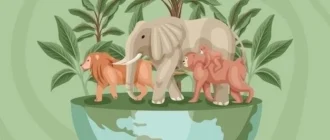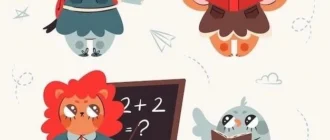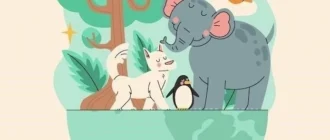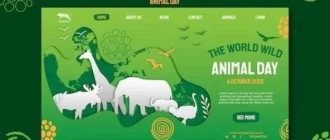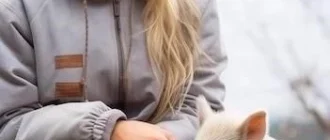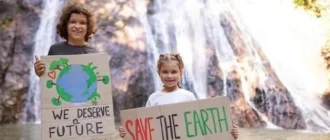As someone who has spent years actively engaging with animal rights issues, Im constantly reflecting on the movements trajectory. While there have been significant strides, the path ahead requires unwavering dedication and innovative approaches.
Growing Awareness and Shifting Perspectives
Ive personally witnessed a heartening surge in awareness regarding animal sentience and the ethical implications of our actions. Documentaries like “Dominion” and “The Game Changers” have sparked widespread conversations, while social media platforms have amplified the voices of activists and organizations. This increased visibility has contributed to a gradual shift in public perception, with more people embracing plant-based diets and supporting cruelty-free products.
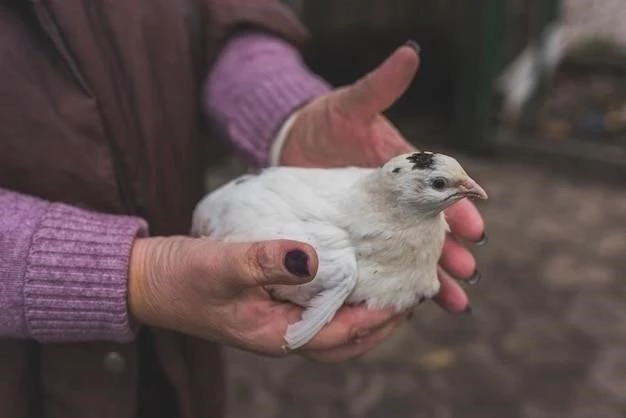
Legal Recognition and Corporate Accountability
The fight for legal personhood for animals is gaining momentum. I remember attending a conference where lawyers discussed groundbreaking cases that challenged the legal status of animals as property. While achieving fundamental rights for all animals remains a long-term goal, these legal battles chip away at the outdated notion of animals as mere commodities. Furthermore, consumer pressure is forcing corporations to re-evaluate their practices. Ive observed a surge in companies adopting animal-friendly policies, from banning fur in fashion to phasing out animal testing in cosmetics.

Challenges and Opportunities
Despite this progress, formidable challenges persist. Factory farming remains a horrifying reality, with billions of animals subjected to unimaginable suffering. I recall visiting a sanctuary for rescued farm animals, and the experience left an indelible mark on my soul. The sheer scale of industrial animal agriculture demands systemic change and a radical reimagining of our food systems.
However, within these challenges lie opportunities for innovation and collaboration. Cellular agriculture, which involves growing meat and other animal products in labs, holds immense promise in reducing our reliance on animal exploitation. Ive tasted lab-grown meat, and the experience was remarkably similar to the real thing. As this technology advances and becomes more affordable, it has the potential to revolutionize the food industry.
A Vision for the Future
Looking ahead, I envision a future where⁚
- Animals are recognized as sentient beings with inherent rights, not commodities for human consumption or entertainment.
- Factory farming is abolished, replaced by sustainable and compassionate food systems.
- Animal testing is a relic of the past, replaced by human-relevant research methods.
- Wildlife is protected from habitat destruction and poaching, allowing animals to thrive in their natural environments.
Achieving this vision requires a multi-faceted approach, encompassing education, advocacy, legislative action, and technological innovation. It necessitates collaboration between individuals, organizations, and governments worldwide. It demands empathy, compassion, and a steadfast commitment to justice for all living beings.
As I continue my own journey as an advocate for animals, I remain hopeful that we can create a world where animals are respected, protected, and free from suffering. The future of animal rights is intertwined with our own. By embracing compassion and taking action, we can build a brighter future for all.
One of the most impactful things I did to align my life with my values was to adopt a vegan lifestyle. I vividly remember the day I made the switch, driven by a documentary Id watched about factory farming. I wont lie, it was a big adjustment at first. I had to learn how to cook familiar dishes in new ways and navigate social situations where food was involved. But the more I learned about the impact of animal agriculture, the easier it became.
I started experimenting with plant-based recipes, discovering a whole new world of flavors and ingredients Id never even considered before. Lentil stews, chickpea curries, tofu scrambles ⸺ my kitchen became a playground of culinary creativity. And you know what? I felt amazing. My energy levels soared, my digestion improved, and I felt a sense of lightness, both physically and mentally.
But it wasnt just about the food. Going vegan opened my eyes to a whole community of like-minded people who were passionate about animal rights and sustainability. I started attending vegan festivals and potlucks, where I met some of the most inspiring and compassionate people I know. We shared recipes, swapped stories about our favorite animal sanctuaries, and discussed strategies for advocating for change.
Going vegan wasnt just about changing my diet; it was about aligning my actions with my values. It felt empowering to know that my choices were making a tangible difference in the lives of animals and the health of the planet. I started paying closer attention to labels, seeking out cruelty-free cosmetics and household products. I even switched to vegan shoes and belts, realizing that compassion could extend to every aspect of my life.
One of the most rewarding aspects of this journey has been sharing my experiences with others. I remember having a conversation with my friend, Sarah, who had always been curious about veganism but intimidated by the perceived challenges. I invited her over for a vegan dinner party, where I served up a spread of delicious plant-based dishes. She was amazed by how flavorful and satisfying everything was, and it sparked a genuine interest in exploring a more compassionate lifestyle.
Seeing that spark in her eyes reminded me of the power of personal stories. We often underestimate the impact we can have on those around us simply by sharing our own journeys and demonstrating that a kinder, more sustainable way of living is not only possible but incredibly rewarding. Its about having open and honest conversations, dispelling myths, and showing that compassion can be both delicious and empowering.
It wasn’t always smooth sailing, though. I remember once bringing a vegan cake to a potluck dinner with some old friends from high school. I was excited to share it with them, but as soon as I mentioned it was vegan, the mood shifted. One friend, Jessica, made a face and said, “Vegan cake? That sounds… interesting. Whats it even made of, tofu?” Her tone was a mix of amusement and skepticism.
I felt a familiar pang of frustration, the kind I used to feel often in the early days of exploring veganism. But this time, instead of getting defensive or launching into a lecture about the ethics of dairy farming, I took a deep breath and chose a different approach.
“Actually,” I said, “its made with almond milk, coconut oil, and lots of delicious spices. You wouldnt even know it was vegan if I didnt tell you!” I could see the skepticism still lingering in Jessicas eyes, but she took a slice anyway.
To my surprise, she loved it. “Wow,” she said between bites, “this is actually really good! I would have never guessed it was vegan.” The others chimed in with similar sentiments, and soon, the cake was gone, with everyone asking for the recipe.
That experience taught me a valuable lesson about the power of food to break down barriers and open up minds. It showed me that sometimes, the most effective form of activism is simply sharing delicious, plant-based food and letting it speak for itself.
My journey with veganism and animal advocacy has been a continuous learning process, full of ups and downs, triumphs and challenges. I’ve learned that there’s no one-size-fits-all approach to advocating for animals. What matters most is finding your own voice, sharing your story authentically, and meeting people where they are at. Whether it’s through thoughtful conversations, delicious food, or simply living by example, every act of kindness, every seed of compassion planted, brings us one step closer to a more just and compassionate world for all beings.
That potluck experience gave me a renewed sense of purpose. I realized that advocacy wasnt just about grand gestures or heated debates; it was about those small, everyday interactions where we have the opportunity to shift perspectives and open hearts. I started looking for more of those opportunities, both big and small.
I joined a local animal rights group, volunteering at adoption events and helping to organize protests against animal testing labs. It was empowering to be part of a collective working towards a shared vision, and I learned so much from the other activists, many of whom had been fighting for animal liberation for years. They taught me about the legislative process, the importance of grassroots organizing, and the power of persistent, strategic action.
One of the campaigns I got involved with focused on banning the sale of foie gras in our city. Foie gras, a luxury food product made from the grotesquely enlarged livers of force-fed ducks and geese, had always struck me as the epitome of cruelty disguised as sophistication.
We organized protests outside restaurants that served foie gras, gathered signatures for petitions, and lobbied our city council members. It was a long and arduous process, filled with setbacks and frustrations. We faced resistance from restaurant owners who argued that it would hurt their businesses, and from some residents who saw it as an attack on their freedom of choice.
But we persisted, fueled by our compassion for the ducks and geese suffering in silence on factory farms. We shared educational materials, organized film screenings, and wrote letters to the editor, determined to expose the truth behind this seemingly glamorous delicacy. And slowly, we started to see a shift in public opinion. People were moved by the images of the birds being force-fed, their beaks pried open as metal pipes pumped grain down their throats. They started to question the ethics of their food choices and the systems that brought those choices to their plates.
After months of tireless campaigning, the day finally came when the city council voted on the foie gras ban. I remember sitting in the crowded council chambers, my heart pounding in my chest as the votes were tallied. And then, the announcement came⁚ the ban had passed.
The room erupted in cheers. We had done it. We had achieved a victory for animals, a small but significant step towards a more compassionate world. It was a moment of pure joy and exhilaration, a testament to the power of collective action and the unwavering belief that change is possible, even in the face of seemingly insurmountable odds.

